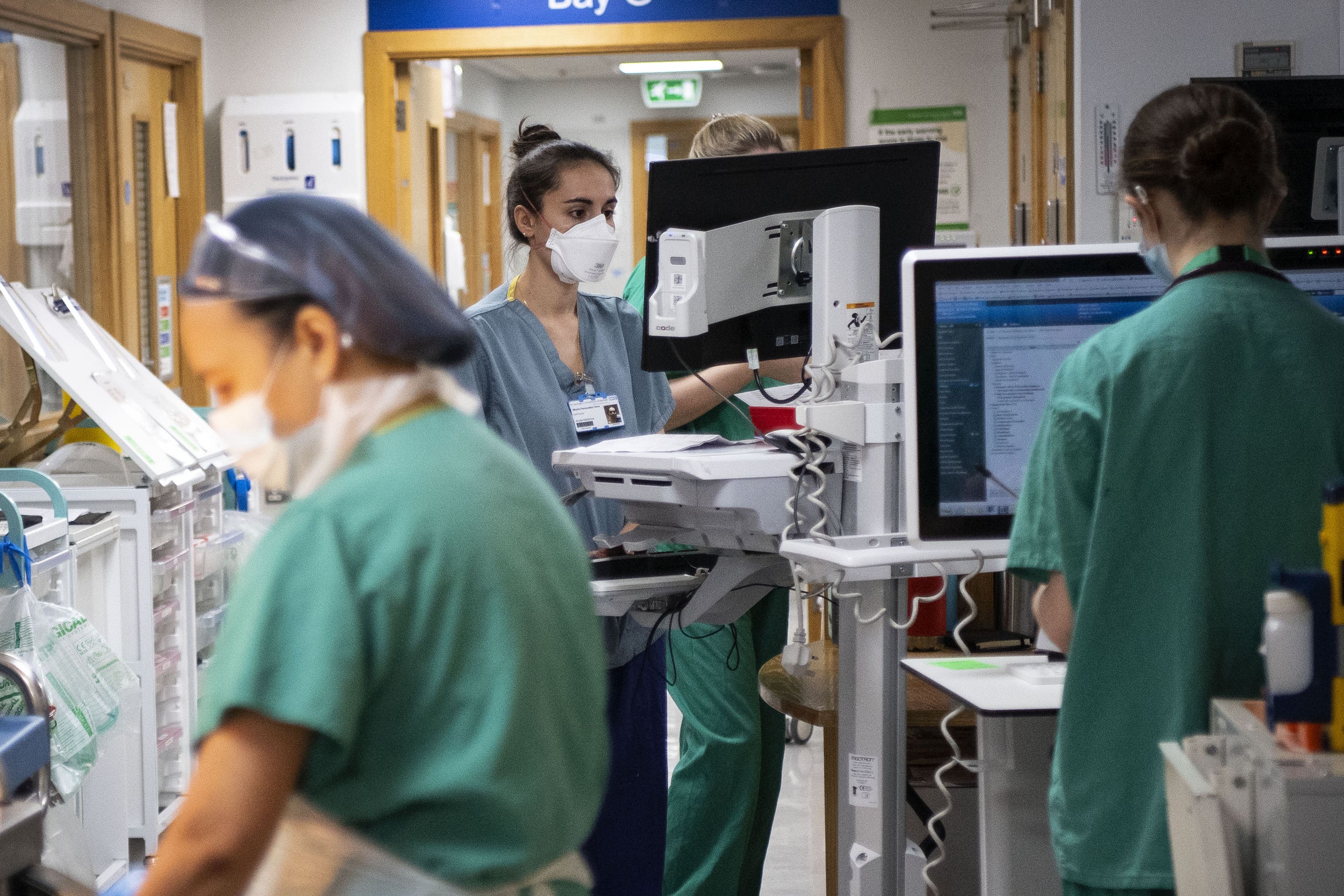One in 10 health workers felt suicidal during pandemic, study finds
The research looked at survey responses from thousands of staff collected between 2020 and 2021.

Your support helps us to tell the story
From reproductive rights to climate change to Big Tech, The Independent is on the ground when the story is developing. Whether it's investigating the financials of Elon Musk's pro-Trump PAC or producing our latest documentary, 'The A Word', which shines a light on the American women fighting for reproductive rights, we know how important it is to parse out the facts from the messaging.
At such a critical moment in US history, we need reporters on the ground. Your donation allows us to keep sending journalists to speak to both sides of the story.
The Independent is trusted by Americans across the entire political spectrum. And unlike many other quality news outlets, we choose not to lock Americans out of our reporting and analysis with paywalls. We believe quality journalism should be available to everyone, paid for by those who can afford it.
Your support makes all the difference.Around one in 10 healthcare workers had suicidal thoughts during the Covid-19 pandemic, new research has found.
The study – led by the University of Bristol and published in the PLOS One journal – looked at results from two surveys which were distributed to all healthcare workers, students and volunteers across 18 NHS trusts in England during the pandemic.
Data for the first survey was collected between April 2020 and January 2021 and was completed by 12,514 workers, while the second looked at October 2020 to August 2021 and was completed by 7,160 workers.
NHS staff need to feel confident that, when they flag concerns, especially about patient safety, these concerns are listened to by their managers and that the concerns are being addressed
The first survey found 10.8% of workers reported having suicidal thoughts in the previous two months, while 2.1% had attempted to take their own life in the same period.
Some 11.3% of workers who did not report suicidal thoughts in the first survey reported them six months later, with 3.9% saying they had attempted suicide for the first time.
Answers highlighted that a lack of confidence in raising safety concerns, feeling unsupported by managers, and having to provide a lower standard of care contributed to staff distress, as well as exposure to things that went against people’s moral values.
Paul Moran, professor of psychiatry at the University of Bristol’s Centre for Academic Mental Health and one of the study’s lead authors, told the PA news agency: “A supportive work environment is very important for staff wellbeing.
“If managers offer insufficient support, this can have a very bad effect on staff mental health.
“NHS staff need to feel confident that, when they flag concerns, especially about patient safety, these concerns are listened to by their managers and that the concerns are being addressed.”
The study’s findings came as the second week of public hearings in the Covid-19 Inquiry is under way. The probe is exploring the UK’s preparedness and resilience to the pandemic.
Last week, Brian Stanton, a lawyer representing the British Medical Association (BMA), told the inquiry many workers “felt pressured to work without adequate protection, with consequences for their mental and physical health”, with some even making aprons out of bin liners.
Dr Prianka Padmanathan, honorary research fellow at the University of Bristol’s Centre for Academic Mental Health and another of the study’s lead authors, said: “Our analyses show that among healthcare workers who had not experienced suicidal thoughts when first completing the survey, one in 10 reported experiencing them six months later.
“Additionally, almost one in 25 staff reported having attempted suicide for the first time.
“These findings highlight the scale of mental health issues across the NHS at a time of unprecedented concern.
“Improvements in mental health support and addressing structural issues around workforce and resources might significantly reduce suicidal thoughts and behaviour among health care workers.”
Having a job is usually better for our mental health than not having a job. But sometimes the nature of the job can increase stress and strain on the individual
Professor Sir Simon Wessely, chief investigator for the survey and professor of psychiatry at King’s College London, said: “Let’s not forget that having a job is usually better for our mental health than not having a job.
“But sometimes the nature of the job can increase stress and strain on the individual.
“In these cases, this work reminds us that the best source of support to maintain your health and wellbeing are not mental health professionals or the people in charge of your organisation.
“It is the person next above you – your immediate supervisor, manager or report, and the people around you – your friends, family and colleagues.”